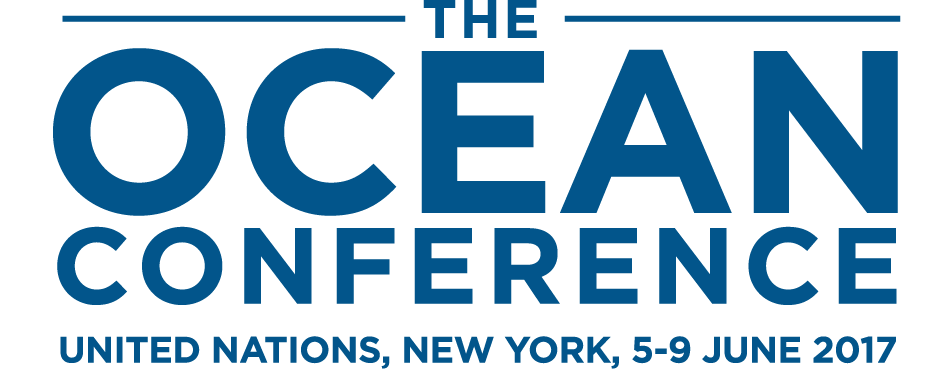Daily report for 9 July 2018
22nd Meeting of the Subsidiary Body on Scientific, Technical and Technological Advice (SBSTTA 22) and 2nd Meeting of the Subsidiary Body on Implementation (SBI 2) of the Convention on Biological Diversity (CBD)
The second meeting of the Subsidiary Body on Implementation (SBI 2) of the Convention on Biological Diversity (CBD) opened on Monday, following the 22nd meeting of the Subsidiary Body on Scientific, Technical and Technological Advice (SBSTTA 22) and a Sunday seminar on transformational change for the biodiversity agenda. Following an opening plenary, delegates engaged in discussions on:
- review of progress in the implementation of the Convention and the Strategic Plan 2011-2020;
- assessment and review of the effectiveness of the Nagoya Protocol on access and benefit-sharing (ABS); and
- mainstreaming of biodiversity within and across sectors, and other strategic actions to enhance implementation.
Opening Plenary
SBI 2 Chair Francis Ogwal (Uganda) opened the meeting and outlined the agenda. On behalf of the Presidency of the Conference of the Parties (COP), Jorge Carlos Hurtado Valdez, Vice-Minister of Environment and Natural Resources, Mexico, drew attention to his country’s efforts to promote biodiversity mainstreaming, both at the national level and across international processes.
CBD Executive Secretary Cristiana Paşca Palmer expressed appreciation to parties providing financial support, including to facilitate participation of least developed countries (LDCs), small island developing states (SIDS), and indigenous peoples and local communities (IPLCs). She highlighted the entry into force of the Supplementary Protocol on Liability and Redress to the Cartagena Protocol on Biosafety; and the successful seventh replenishment of the Global Environment Facility (GEF), with US$1.3 billion programmed for biodiversity. She stressed that pathways for the future need to be systemic, inclusive, and transformative, and benefit human well-being, the economy, and the planet.
Jiří Hlaváček, UN Environment Programme (UNEP), on behalf of Executive Director Erik Solheim, underscored the importance of mainstreaming biodiversity in different sectors.
Roberta Bondar, Roberta Bondar Foundation, highlighted the relationship between human behavior, perspective, and commitment to achieve “what we ethically need to as life forms on the planet.” As the first Canadian woman in space, she lamented the ongoing loss of biodiversity that “we don’t even know is there,” and highlighted the contributions of the Bio-Bridge Initiative, which facilitates technical and scientific cooperation among CBD parties.
Organizational Matters: Delegates adopted the agenda and organization of work (CBD/SBI/2/1/Rev.1 and Add.1), with an amendment to consider preparation for the follow up to the Strategic Plan after biodiversity mainstreaming; and elected Elena Makeyeva (Belarus) as the meeting’s rapporteur.
Implementation of the Convention and the Strategic Plan
The Secretariat introduced relevant documentation (CBD/SBI/2/2, 2/Add.1-3, INF/5, 10, and 11, and CBD/SBSTTA/22/INF/30). Many supported the draft recommendations on the review of the National Biodiversity Strategies and Action Plans (NBSAPs) and national reports, and the 2015-2020 Gender Plan of Action.
The EU emphasized the urgency of strengthening action for implementation. NEW ZEALAND, VENEZUELA, and Cameroon for the AFRICAN GROUP, noted with concern that commitment and activities need to be scaled up to achieve the Aichi Targets. The AFRICAN GROUP, with CUBA, JORDAN, and others, stressed the importance of finance, technology transfer, and capacity building. SOUTH AFRICA urged addressing information gaps. NAMIBIA pointed to challenges in fostering cross-sectoral collaboration.
Bosnia and Herzegovina, for CENTRAL AND EASTERN EUROPE (CEE), underscored that financial support for countries with economies in transition came late, and called for a flexible framework allowing the combination of elements from different Aichi Targets to prioritize national needs. SYRIA and YEMEN requested support to implement and update their NBSAPs. INDIA lamented that the 2015 Aichi Targets 10 (coral reefs) and 17 (NBSAPs) have not been achieved, and urged to step up efforts to operationalize the Nagoya Protocol under Target 16. ECUADOR and PERU emphasized poverty eradication. MALAWI called for gender responsive actions and full and effective participation of youth.
COSTA RICA and SWITZERLAND noted that national efforts and realities are not properly reflected in the documents. SWITZERLAND suggested involving parties in the NBSAP analysis process. CAMBODIA called for specifically addressing Aichi Target 11 (Protected Areas) in the recommendations. CHINA highlighted that stocktaking exercises contribute to accelerating progress. COLOMBIA urged focusing on bottlenecks impeding progress and called for exchanging best practices.
The UNEP WORLD CONSERVATION MONITORING CENTRE (UNEP-WCMC) stressed the need for integrated and synergistic approaches to implementing biodiversity targets and the Sustainable Development Goals (SDGs). The GLOBAL BIODIVERSITY INFORMATION FACILITY (GBIF) invited parties to contribute to harnessing the power of big data to support the implementation of the Convention. The UNITED NATIONS UNIVERSITY INSTITUTE FOR THE ADVANCED STUDY OF SUSTAINABILITY pointed to the Satoyama Initiative on assessing the current state and threats to socio-ecological production landscapes and seascapes.
The INTERNATIONAL INDIGENOUS FORUM ON BIODIVERSITY (IIFB), supported by AUSTRALIA and others, welcomed the proposal by the Secretariat and Malawi to create a “Friends of Gender Equality” group. The IIFB lamented many countries did not involve IPLC representatives in NBSAP development and, supported by CANADA, called for considering local biodiversity outlooks in NBSAP revision.
The GLOBAL YOUTH BIODIVERSITY NETWORK (GYBN) urged parties to integrate gender as a cross-cutting issue and core activity in the post-2020 biodiversity framework. The GLOBAL FOREST COALITION and the ICCA CONSORTIUM, supported by CANADA, proposed to acknowledge that the current rate of implementation is insufficient to meet the Aichi Targets and to emphasize the need to scale up efforts in the next two years.
A conference room paper will be prepared.
Assessment and Review of the Nagoya Protocol
The Secretariat introduced relevant documentation (CBD/SBI/2/3, and INF/3, 4, 7, and 8), including draft recommendations, and a draft framework of indicators and reference points to measure progress.
Many supported the draft recommendations and said it is premature to assess the effectiveness of the Nagoya Protocol at this early stage of implementation. The EU noted that further efforts are needed to fully operationalize the Protocol, and stressed the need for mutual supportiveness with relevant instruments, such as the International Treaty on Plant Genetic Resources for Food and Agriculture (ITPGRFA).
ECUADOR, with many, highlighted needs for capacity building and institutional strengthening. The Philippines, for the ASSOCIATION OF SOUTHEAST ASIAN NATIONS (ASEAN), pointed to capacity-building initiatives in the region. MALAWI stressed training for ABS contracts. Many called for continued GEF support.
INDONESIA highlighted the importance of coordination among relevant sectors and regulations on ABS. URUGUAY noted that Protocol implementation should reflect parties’ biodiversity, and cultural and socio-economic characteristics. GUATEMALA and ANTIGUA AND BARBUDA suggested that implementation of the Protocol provisions relevant to IPLCs should take into account their norms, collective actions, and customary rights. The DOMINICAN REPUBLIC emphasized participation of women.
SWITZERLAND stressed the need to ensure legal certainty and avoid unnecessary administrative burdens, and to provide clear and regularly updated information to the ABS Clearing-house. SUDAN pointed to monitoring the utilization of genetic resources to promote implementation.
NORWAY and others appreciated the indicators framework as a flexible tool that can be adapted as progress is made. SOUTH AFRICA said future assessments should cover, among other issues, compliance with mutually agreed terms, and scientific collaboration and technology transfer.
MOROCCO and VENEZUELA highlighted that, in preparation for ratification, they had submitted interim reports and are developing national legislative frameworks. An IPLC representative urged supporting the full and effective participation of IPLCs in developing ABS regulations, and called for using culturally appropriate tools for awareness raising.
The UN FOOD AND AGRICULTURE ORGANIZATION (FAO) delineated the work of its Commission on Genetic Resources for Food and Agriculture (CGRFA) work on ABS for different sub-sectors of genetic resources for food and agriculture. UNEP pledged continued support through legal and technical assistance to parties. A conference room paper will be prepared.
Biodiversity Mainstreaming
Delegates followed a presentation by Jimmiel Mandima (African Wildlife Foundation) and Neville Ash (UNEP-WCMC) on cross-sector examples and lessons learned on mainstreaming biodiversity, which highlighted, inter alia, the need to: make a strong business case linking biodiversity with poverty alleviation; identify champions and engage the right stakeholders beyond the biodiversity sector; make biodiversity data readily accessible to decision makers; and reflect mainstreaming in planning, budgeting, implementation, monitoring, and evaluation activities.
The Secretariat introduced relevant documentation (CBD/SBI/2/4, 4/Add.1-5, and INF/31, 36, 37, and 39), including proposals for a long-term strategic approach and the establishment of an expert group on mainstreaming. Many delegates welcomed the recommendations and emphasized the importance of mainstreaming biodiversity to achieve the CBD objectives. NORWAY emphasized linking biodiversity mainstreaming efforts to the SDGs. Many stressed financial and capacity needs. ARGENTINA urged building on the indicators developed in the context of the SDGs and, with the MALDIVES, stressed acknowledging different circumstances and national priorities in mainstreaming.
Many supported the establishment of an expert group, with NEW ZEALAND and CANADA calling for clarifying its tasks and expediting its deliberations to report back at SBI 3. SWITZERLAND expressed doubt regarding the need for a new group or new reporting requirements, noting merit in exchanging relevant experiences. The EU supported establishment of an informal advisory group. BIRDLIFE INTERNATIONAL said the expert group should prepare voluntary guidance for different sectors.
MOROCCO and CANADA proposed that the Secretariat compile national experiences. SOUTH AFRICA suggested identifying existing complementary capacities within regional organizations to support national mainstreaming efforts.
The EU and MEXICO proposed identifying sustainable consumption and production patterns as pathways for mainstreaming. URUGUAY and INDIA highlighted impact assessment tools. NIGER, and Bosnia and Herzegovina, for the Balkan sub-region of CEE, emphasized the role of education for behavioral change. JAPAN proposed the provision of incentives to promote public disclosure of corporate activities related to biodiversity. MALAWI urged capacity building for data collection at the country level. CHINA delineated how “ecological civilization,” as the country’s long-term approach to development, contributes to biodiversity mainstreaming. INDIA highlighted the potential for NBSAPs to function as mainstreaming tools if their development is conducted in an inclusive manner. ETHIOPIA called for including the finance sector.
SUDAN emphasized the need to take into account the role of IPLCs in mainstreaming biodiversity. The IIFB called for procedural safeguards, including access to information and free, prior and informed consent (FPIC). The ICCA CONSORTIUM, FRIENDS OF THE EARTH, and the CBD ALLIANCE stressed that IPLCs, women, and children are rights-holders, not just stakeholders.
The GROUP OF LEADING SUBNATIONAL GOVERNMENTS proposed mentioning their efforts in the sixth national reports and enhancing collaboration for biodiversity mainstreaming. FAO highlighted its biodiversity mainstreaming platform, launched at COP 13. GYBN stressed the need to go beyond companies’ branding strategies to bring forth the transformational change required.
In the Corridors
As delegates rolled up their sleeves to tackle an extensive agenda at SBI 2, many highlighted the linkages with discussions held at SBSTTA 22. As in the previous week, the review of progress in the implementation of the Convention and its Strategic Plan was met with mixed feelings. Many participants expressed deep concern, noting partial failure to achieve the targets due in 2015, and underscoring the risk that the remaining ones may suffer the same fate. A veteran lamented that “much more work should have been done in the past eight years.” On the other hand, “there is no point crying over spilled milk,” an optimist noted. “It is essential we focus our efforts on the areas that require it most in the limited time we’ve got left,” she continued, focusing on the value of lessons learned, both for implementation of the current, and the design of the future, framework.
-->
Specific funding for coverage of the Ocean Conference - June 2017, has been provided by the
XXX, XXX, and XXX
-->
IISD Reporting Services is a division of the International Institute for Sustainable Development (IISD).
Earth Negotiations Bulletin (ENB), ENB+, and Knowledge Management for Sustainable Development
are branches within IISD Reporting Services.
© 1992-2018, IISD Reporting Services. All rights reserved.







